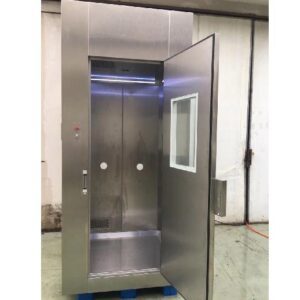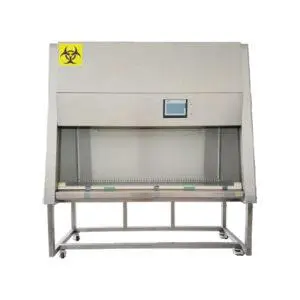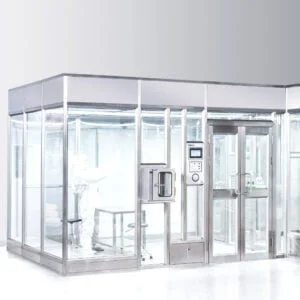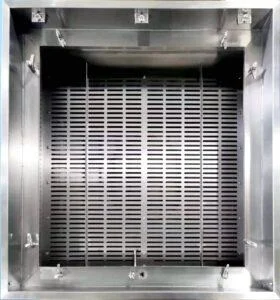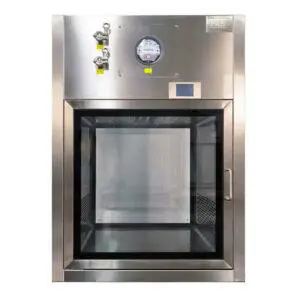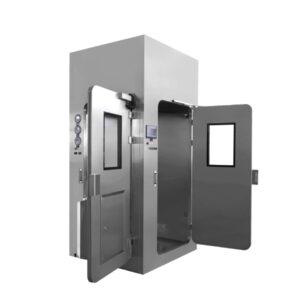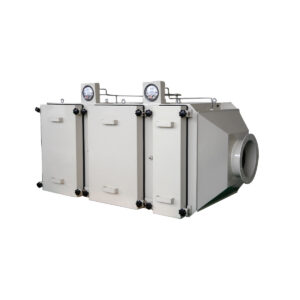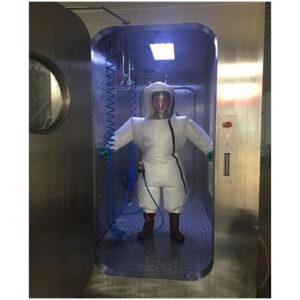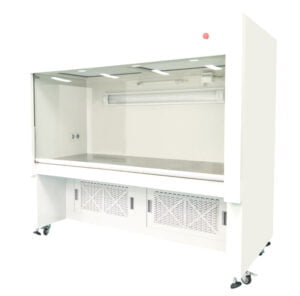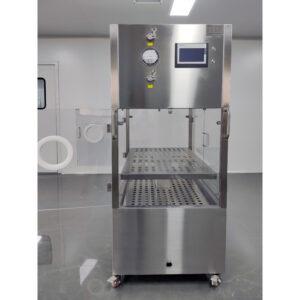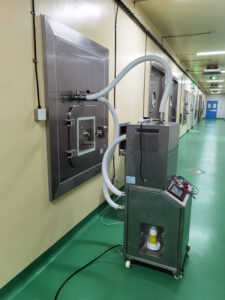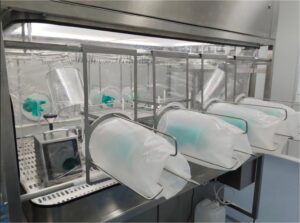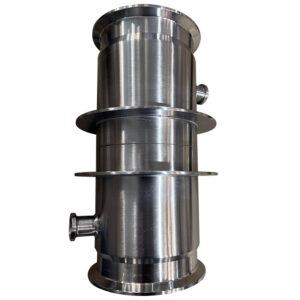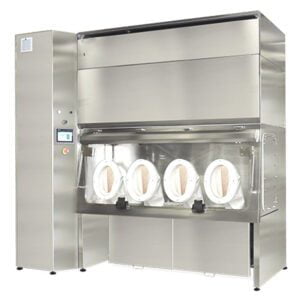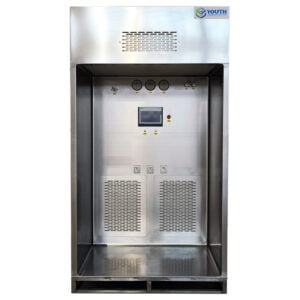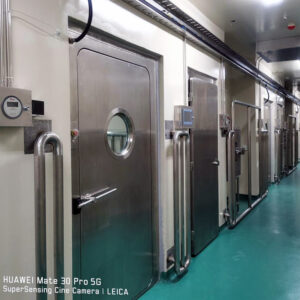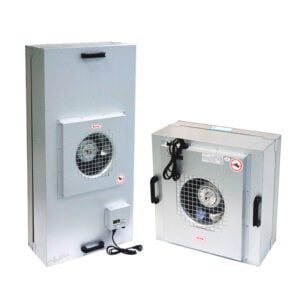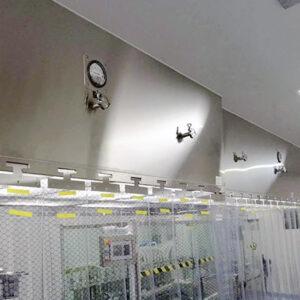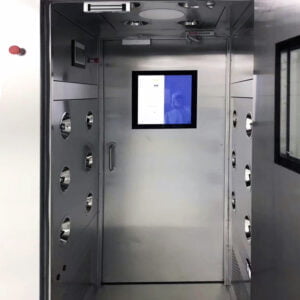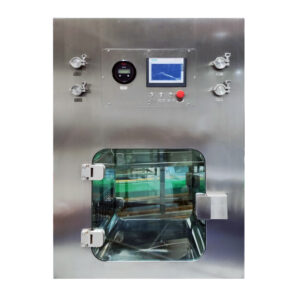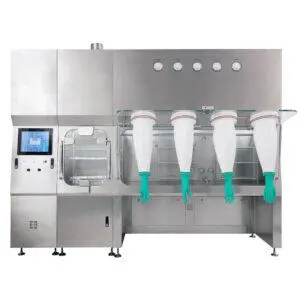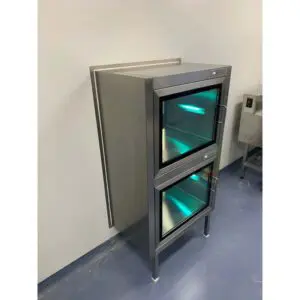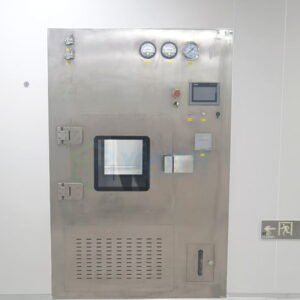In today's world of increasing food safety concerns, the implementation of advanced technologies in food processing facilities has become paramount. Among these innovative solutions, Bag-In-Bag-Out (BIBO) systems have emerged as a critical component in ensuring product safety and maintaining the highest standards of cleanliness. These systems, originally developed for high-risk environments like pharmaceutical laboratories and nuclear facilities, are now making significant inroads into the food processing industry.
BIBO systems are designed to provide a secure and contamination-free method for replacing filters in critical environments. By allowing operators to change filters without direct exposure to the contaminated environment or the filter itself, these systems minimize the risk of contamination and protect both workers and products. As food safety regulations become increasingly stringent, BIBO systems offer a reliable solution for maintaining sterile conditions throughout the production process.
This article will delve into the intricacies of BIBO systems in food processing, exploring their functionality, benefits, and impact on product safety. We'll examine how these systems work, their key features, and the various applications within the food industry. Additionally, we'll discuss the regulatory compliance aspects and the future outlook for BIBO technology in ensuring safe, high-quality food products for consumers worldwide.
"BIBO systems are revolutionizing contamination control in food processing facilities, providing an unparalleled level of safety for both products and personnel."
How do BIBO systems function in food processing environments?
BIBO systems in food processing environments operate on a simple yet effective principle. These systems consist of a housing unit that contains the filter, which is sealed within a bag. When it's time to replace the filter, a new bag is attached to the housing, creating a secure barrier between the contaminated filter and the clean environment.
The process begins with the operator attaching a new bag to the housing unit. Once secured, they can safely remove the old filter into this bag without exposing it to the surrounding environment. The contaminated filter is then sealed within the bag and removed, while a new filter is installed using a similar reverse process, all without breaking the containment barrier.
This method ensures that potentially harmful particles or microorganisms trapped in the old filter never come into contact with the clean processing area or the operator. It's a crucial feature in maintaining the sterility of food processing environments, where even minor contamination can have serious consequences.
"The BIBO system's ability to maintain a sterile barrier during filter changes is unparalleled, making it an essential tool in modern food safety protocols."
| Feature | Benefit |
|---|---|
| Sealed containment | Prevents contamination during filter changes |
| Easy operation | Minimizes human error and exposure risks |
| Versatile application | Suitable for various food processing areas |
| Regulatory compliance | Meets stringent industry standards |
What are the key benefits of implementing BIBO systems in food processing?
Implementing BIBO systems in food processing facilities offers a multitude of benefits that directly impact product safety and operational efficiency. First and foremost, these systems provide an unparalleled level of contamination control. By creating a secure barrier during filter changes, BIBO systems significantly reduce the risk of introducing harmful particles or microorganisms into the processing environment.
Another crucial advantage is the protection offered to workers. Traditional filter replacement methods can expose operators to potentially hazardous materials trapped in the filters. BIBO systems eliminate this risk, ensuring that workers can perform maintenance tasks safely and efficiently.
Furthermore, BIBO systems contribute to maintaining consistent product quality. By preventing contamination events, these systems help food processors avoid costly product recalls and maintain consumer trust. This consistency is particularly important in an industry where reputation and brand integrity are paramount.
"The implementation of BIBO systems in food processing not only enhances product safety but also significantly improves operational efficiency and worker protection."
| Benefit | Impact |
|---|---|
| Contamination control | Reduces risk of product recalls |
| Worker safety | Minimizes exposure to hazardous materials |
| Operational efficiency | Streamlines maintenance procedures |
| Regulatory compliance | Helps meet FDA and USDA standards |
How do BIBO systems contribute to regulatory compliance in food processing?
In the highly regulated food processing industry, compliance with stringent safety standards is non-negotiable. BIBO systems play a crucial role in helping facilities meet and exceed these regulatory requirements. The 'YOUTH Bag-In-Bag-Out (BIBO)' systems, for instance, are designed to comply with various international standards and regulations.
These systems align with Good Manufacturing Practices (GMP) and Hazard Analysis Critical Control Point (HACCP) principles, which are fundamental to food safety management. By providing a controlled method for filter changes, BIBO systems help maintain the integrity of critical control points in the production process.
Moreover, BIBO systems contribute to meeting the requirements set by regulatory bodies such as the Food and Drug Administration (FDA) and the United States Department of Agriculture (USDA). These agencies emphasize the importance of preventing contamination and maintaining clean production environments, areas where BIBO systems excel.
"BIBO systems are not just a technological advancement; they are a strategic tool for ensuring regulatory compliance in the ever-evolving landscape of food safety regulations."
| Regulation | BIBO Contribution |
|---|---|
| GMP | Ensures consistent quality control |
| HACCP | Maintains critical control points |
| FDA standards | Prevents contamination in processing |
| USDA requirements | Supports clean production environments |
What types of filters are commonly used in BIBO systems for food processing?
BIBO systems in food processing utilize a variety of filters, each designed to address specific contamination concerns. High-Efficiency Particulate Air (HEPA) filters are among the most commonly used, capable of removing 99.97% of particles as small as 0.3 microns. These filters are crucial in environments where airborne contaminants pose a significant risk to product safety.
Ultra-Low Penetration Air (ULPA) filters are another option, offering even higher filtration efficiency for ultra-clean environments. These filters can capture particles as small as 0.12 microns with 99.9995% efficiency, making them ideal for the most stringent food processing applications.
Activated carbon filters are also frequently employed in BIBO systems, particularly in areas where odor control is essential. These filters are effective at removing volatile organic compounds (VOCs) and other gaseous contaminants that could affect food quality.
"The selection of appropriate filters for BIBO systems is critical in food processing, as it directly impacts the level of contamination control and, ultimately, product safety."
| Filter Type | Particle Size Removal | Efficiency |
|---|---|---|
| HEPA | 0.3 microns | 99.97% |
| ULPA | 0.12 microns | 99.9995% |
| Activated Carbon | Gaseous contaminants | Varies |
How are BIBO systems integrated into existing food processing facilities?
Integrating BIBO systems into existing food processing facilities requires careful planning and execution. The process typically begins with a comprehensive assessment of the facility's current air handling and filtration systems. This evaluation helps identify critical areas where BIBO systems can provide the most significant benefits in terms of contamination control and operational efficiency.
Once the optimal locations are determined, the installation process involves minimal disruption to existing operations. BIBO systems are designed to be modular and adaptable, allowing for seamless integration with various types of processing equipment and air handling units. This flexibility is crucial in the food industry, where production downtime can have significant financial implications.
Training is a vital component of the integration process. Facility personnel must be thoroughly educated on the proper operation and maintenance of BIBO systems to ensure their effectiveness. This includes training on filter change procedures, safety protocols, and system monitoring.
"The successful integration of BIBO systems into food processing facilities hinges on thorough planning, minimal operational disruption, and comprehensive staff training."
| Integration Step | Key Consideration |
|---|---|
| Facility Assessment | Identify critical contamination control points |
| System Design | Ensure compatibility with existing infrastructure |
| Installation | Minimize production downtime |
| Staff Training | Develop comprehensive operation protocols |
What are the maintenance requirements for BIBO systems in food processing?
Maintaining BIBO systems in food processing environments is crucial for ensuring their continued effectiveness and compliance with safety standards. Regular maintenance typically includes inspections of the housing unit, bag seals, and filter integrity. These checks help identify any potential issues before they can compromise the system's performance.
Filter replacement is a key aspect of BIBO system maintenance. The frequency of replacement depends on various factors, including the type of food being processed, the volume of production, and the environmental conditions. Regular monitoring of filter performance, often through pressure differential measurements, helps determine the optimal time for replacement.
Cleaning and sanitization of the external surfaces of BIBO units are also essential. This process must be carried out using approved cleaning agents that are safe for use in food processing environments. It's important to note that the internal components of the BIBO system should remain sealed and untouched during routine cleaning to maintain their integrity.
"Proper maintenance of BIBO systems is not just about preserving equipment; it's about safeguarding the entire food production process and ensuring consistent product safety."
| Maintenance Task | Frequency | Importance |
|---|---|---|
| Visual Inspection | Daily | High |
| Filter Performance Check | Weekly | Critical |
| External Cleaning | Daily/Weekly | Medium |
| Filter Replacement | As needed (based on monitoring) | Critical |
How do BIBO systems compare to other contamination control methods in food processing?
When comparing BIBO systems to other contamination control methods in food processing, several key factors come into play. Traditional methods often involve open filter changes, which can expose the environment to contaminants and pose risks to workers. BIBO systems, on the other hand, provide a closed system that significantly reduces these risks.
Another common method is the use of disposable filters that are completely replaced, housing and all. While this method does offer some contamination control benefits, it generates more waste and can be more costly in the long run. BIBO systems allow for the replacement of just the filter media, reducing waste and operational costs.
Laminar flow booths and clean rooms are other alternatives used in food processing. While effective, these solutions often require significant infrastructure changes and can be less flexible than BIBO systems. BIBO units can be more easily integrated into existing setups and moved as needed.
"BIBO systems offer a unique combination of safety, efficiency, and flexibility that sets them apart from traditional contamination control methods in food processing."
| Method | Contamination Risk | Cost | Flexibility |
|---|---|---|---|
| BIBO Systems | Low | Medium | High |
| Open Filter Changes | High | Low | Medium |
| Disposable Filters | Medium | High | Medium |
| Laminar Flow Booths | Low | High | Low |
What future developments can we expect in BIBO technology for food processing?
The future of BIBO technology in food processing looks promising, with several exciting developments on the horizon. One area of focus is the integration of smart sensors and IoT (Internet of Things) technology. These advancements will allow for real-time monitoring of filter performance, predictive maintenance, and automated alerts for filter changes.
Another anticipated development is the use of advanced materials in filter construction. Researchers are exploring nanomaterials and biocatalytic coatings that could enhance filtration efficiency and potentially extend filter life. These innovations could lead to even more effective contamination control in food processing environments.
Sustainability is also likely to play a significant role in future BIBO system designs. Manufacturers are exploring ways to make these systems more energy-efficient and to reduce the environmental impact of filter disposal. This could include the development of biodegradable filter materials or more efficient recycling processes for used filters.
"The future of BIBO technology in food processing is poised to bring enhanced efficiency, sustainability, and integration with smart systems, further revolutionizing contamination control in the industry."
| Future Development | Potential Impact |
|---|---|
| Smart Sensors | Improved monitoring and maintenance |
| Advanced Materials | Enhanced filtration efficiency |
| Sustainability Features | Reduced environmental impact |
| AI Integration | Optimized system performance |
In conclusion, BIBO systems have emerged as a critical component in ensuring product safety within the food processing industry. Their ability to provide a secure, contamination-free method for filter replacement has made them an invaluable tool in maintaining sterile conditions throughout the production process. As we've explored, these systems offer numerous benefits, from enhanced worker safety to improved regulatory compliance.
The implementation of BIBO systems represents a significant step forward in contamination control technology for food processing. By minimizing the risk of exposure to harmful particles and microorganisms, these systems help maintain the highest standards of product quality and safety. This is particularly crucial in an industry where even minor contamination events can have far-reaching consequences.
Looking ahead, the continued evolution of BIBO technology promises even greater advancements in food safety. With the integration of smart sensors, IoT capabilities, and more sustainable designs, these systems are set to become even more efficient and effective. As food safety regulations continue to tighten and consumer expectations for product quality rise, BIBO systems will undoubtedly play an increasingly important role in the food processing industry.
Ultimately, the adoption of BIBO systems reflects a commitment to excellence in food safety and quality. By investing in these advanced contamination control solutions, food processors are not only protecting their products and workers but also safeguarding public health and building consumer trust. As the industry continues to evolve, BIBO systems will remain at the forefront of ensuring safe, high-quality food products for consumers worldwide.
External Resources
Leveraging Bag-In-Bag-Out for Sterile Production Environments – This article discusses how BIBO systems can be used in sterile production environments, including food processing, to ensure the purity of products and prevent contamination. It highlights the airtight protection, tailored solutions, and regulatory compliance offered by BIBO systems.
BIBO Bag In Bag Out system and its working principle – This resource explains the working principle of BIBO systems, which are used in cleanrooms and other environments where hazardous substances are present. It details the structure and operation of BIBO systems, ensuring the safety of operators and the environment.
Biosensor in smart food traceability system for food safety and security – Although not exclusively focused on BIBO systems, this article discusses advanced technologies in food safety, including smart traceability systems and biosensors. It touches on the broader context of ensuring food safety throughout the supply chain, which can be complemented by BIBO systems.
Cleanroom Technology: BIBO Systems for Contamination Control – This link would direct to resources similar to the one provided, focusing on the use of BIBO systems in cleanrooms, which is highly relevant to food processing environments where contamination control is critical.
Advanced Biopharmaceutical and Food Manufacturing Technologies – While primarily focused on biopharmaceutical manufacturing, this article by Frost & Sullivan touches on advanced manufacturing technologies that can be applied to food processing. It discusses innovations in large-scale production and contamination control, which are relevant to the use of BIBO systems in food processing.
Related Contents:
- Bag-In/Bag-Out (BIBO) Systems: Operation and Maintenance Guide
- The Cost-Effectiveness of BIBO Systems in Industrial Applications
- Unveiling the Power of Bag-In-Bag-Out Systems
- The Intricate World of BIBO Filter Housing
- Nuclear Safety Revolution: BIBO Systems Enhance Protection
- BIBO Systems: Advancing HEPA Filtration Safety and Efficiency
- Maintaining BIBO Filter Housings: Best Practices for Optimal Performance
- Introduction
- Implementing BIBO Systems in Biotechnology Research Labs


